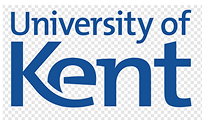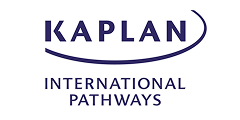Comprehensive Overview of UK
One of the world leaders in the provision of higher education, the UK boasts universities that are centuries old and consistently ranked among the world’s best. From multicultural city life of the likes of London, Manchester, Birmingham and Edinburgh to the idyllic college towns of Cambridge and Oxford, the UK offers an immense diversity of courses. The UK universities emphasize theoretical underpinnings and practical skills, and are all backed up by direct industry links and world-standard research. The international students make up their own international communities within cities, share high standards of support, and enjoy extensive opportunities for professional development within one of the world’s most cosmopolitan areas.
| Category | Details |
|---|---|
| Average Annual Cost of Studying in UK | Total (maybe higher in London) |
| Program Costs (per year) | Undergraduate Bachelor. Postgraduate Master’s. Doctoral |
| Tier 4 Student Visa | Application from outside UK. Extension or switch from inside UK. |
| Short-term Study Visa | For courses up to 11 months |
| Post Study Work Visa | UG& PG- 2 years PhD - 3 years |
Key Reason to Choose UK
The United Kingdom offers an unparalleled blend of academic quality, cultural diversity, and extensive research possibilities that prepare students for global careers.
Partnered with 500+ Trusted Universities Worldwide
Student Visa Requirements
Foreign students who would like to study within the United Kingdom are required to obtain the UK Student Visa. It is awarded on the basis of an institutional formal admission offer from an institution recognized by the authorities, proof of sufficient means to pay fees and living expenses, and an existing valid passport. Additional documentation, including biometrics and health clearance, may or may not be required. The visa is usually awarded for the duration of the course.
Cost of Living & Budgeting
Living costs in the UK can vary significantly depending on the region; i.e., major cities like London are relatively high compared to smaller areas. Students must plan their transport, food, leisure-time activities, and accommodation. Budget advice and help are easily provided by most universities, and there are plenty of affordable accommodations that you can access to manage your expenses while you study.
Accommodation Options
There are numerous options of staying in the UK depending on different needs and different budgets. Students can reside on campus housing, private hostel residence, flat shares, or homestays. Campus housing is usually practical and is often provided in supportive campus communities, while off-campus housing is often more independent and flexible. It makes sense to plan early and get the best possible deal to suit your lifestyle and budget.
Work & Internship opportunities
While studying, foreign students in the UK are permitted to work part-time (20 hours per week); during vacation periods, they may work full-time. UK universities usually have corporate contacts and partners with whom they cooperate and share long-term relationships, and they provide internships and work-integrated learning experiences and chances that expose students to valuable practical skills. Such agreements not only cover living expenses but also improve occupational skills and employability.
Get the Answers You Need for Studying in UK
The UK rules often change and create confusion. Below are some of the most asked questions on studying in the UK:
In the UK, a bachelor’s degree typically takes 3 years to complete, while a master’s degree usually takes 1 year.
All colleges demand IELTS or TOEFL scores as confirmation of English language competency; other examinations are requested for specialized courses.
Typically, students attend classes 3 to 5 days a week depending on the number of classes taken per semester/trimester for bachelor’s degree and 2-4 days per week for a master’s degree.
Yes, most universities provide partial university specific scholarships to international students. Students seeking for full aid or full financial support should consider applying for Chevening and Commonwealth Scholarships.
Students can only apply for student visas after receiving the Confirmation of Acceptance of Studies (CAS) from the desired institution, prepare financial documents, meet the financial requirements and apply online. Currently the UK student visa fee is £490 and immigration health surcharge of £776. This amount is subject to change without prior notice.





































